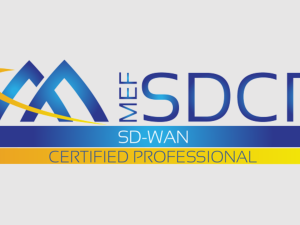Introduction to DevOps

Course Overview
The software industry has always been under pressure to minimize development time while ensuring high-quality performance and cybersecurity. Modern software consumption demands require continuous updates and fixes, which can result in time losses or earnings for businesses and potential cybersecurity concerns.
The delays in software development are often caused by the divide between development and operations teams, each with their own priorities. DevOps is a revolutionary concept that combines Development and Operations, breaking down barriers and promoting bi-directional collaboration and effective communication. This course will provide participants with the knowledge and skills to implement DevOps practices and tools to improve efficiency, productivity, and security in software development.
In this course, participants will learn about the advantages of automating processes in software development, how to implement continuous integration and continuous delivery methodologies (CI/CD) to streamline the delivery process, the creation of applications in containers, as well as the design, deployment, and maintenance of automation processes in software development.
Participants will learn about the agile methodology for creating a secure, reliable, and production-ready software product. They will also gain an understanding of DevOps security and testing fundamentals to ensure the quality and security of the software product. Finally, the course will cover how modern telecom infrastructure is delivered using CI/CD and its impact on the industry. Hands-on exercises are included in the course for participants to apply concepts to real-world scenarios.
Target Audience
- Radio Engineers who wish to understand how modern 5G infrastructure is going to be delivered and maintained.
- Packet Core Engineers who wish to understand how modern cloud-native 5G core’s lifecycle is being managed.
- Technical Product Managers, Technical Product Marketing Professionals, Technical Strategy Officials, C-level Decision Makers & Executives, Regulators in any industry that relates to dealing with software.
Duration & Training Format
Instructor-led Training
- Classroom: 4 days
- LIVE Virtual: 28 hours
- A minimum of 8 or more participants is required for a Classroom session to commence.
- A minimum of 6 or more participants is required for a LIVE Virtual session to commence.
- LIVE Virtual courses can be conducted for 5 hours or 7 hours daily. Please note that the number of training days will be extended if you opt for 5 hours daily.
Upcoming Course Dates
There are no upcoming course dates currently scheduled for this course. If you are keen on attending this course, please register your interest and indicate your preferred start/end training dates via our course enquiry form for us to open a Classroom/LIVE Virtual class schedule for this course.
Course Objectives
At the end of this course, participants will be able to:
- Understand the benefits of automating processes in software development and how it can improve efficiency and productivity
- Implement continuous integration and continuous delivery methodologies (CI/CD) in software development to streamline the delivery process
- Develop a structure to create applications in containers and understand the advantages of containerization
- Design, deploy, and maintain automation processes in software development to improve the overall software development lifecycle
- Create a secure, reliable, and production-ready software product using agile methodology
- Understand DevOps security and testing fundamentals to ensure the quality and security of the software product
- Gain knowledge of how modern telecom infrastructure is delivered using CI/CD and its impact on the industry
Course Outline
- 5G RAN New Requirements
- Timeline for 5G Deployment at Scale
- 5G RAN Architecture
- 5G RAN Deployment Architecture
- Distributed RAN vs. Centralized RAN
- Mapping 5G RAN to Transport Network
- Mapping Functional Modules to the Physical Network
- Deployment Topologies
- gNB Architecture
- Distributed Unit
- Central Unit
- CPRI Connections
- Fronthaul/Midhaul/Backhaul Details
- Fronthaul/Midhaul/Backhaul Dimensioning
- CloudRAN Architecture
- gNB General IP Properties
- gNB Deployment Options
- Common Transport when Co-siting LTE-5G
- 5G Transport Requirement
- 5G Use Cases
- 4G-LTE/LTE-A Transport Network Architecture Review
- Core and Content Distribution to meet Bandwidth and Latency Requirements
- 5G Radio Architecture, Split Options and Transport Impacts
- Transport Requirements per Mobile Network Segment
- 5G Transport Protocol Stacks
- GPS based Synchronization
- IEEE 1588-2008 Precision Time Protocol (PTP)
- Synchronous Ethernet
- Timing over Packet with Phase Synch
- Time Error Budget
- Microwave: Technology Evolution
- xPON Technology Evolution
- Last-mile Technology Fit
- Transport and Technology Options for x-RAN
- What is Network Slicing
- Tenancy and Network Slicing
- Architecture of 5G Network Slicing
- Identify SDN Architectural Component Design, API Principals and SDN Network Design
- Hybrid Switch Modes
- Reactive versus Proactive Applications
- Common API Primitives
- API Communication Protocols (REST, RESTCONF, Java)
- Module II – Overview of OpenFlow® Protocol
- OpenFlow® Protocol Message Structures, Features
- Open Source versus Vendor Specific
- Anatomy of a Controller
- NBI Models/Implementations
- The rise of EON – Elastic Optical Networks
- Dynamic ROADM
- Routing and Spectrum Allocation
- Multi-domain Transport Integration
- Dynamic Management, Provisioning and Orchestration
- Service Chaining and Orchestration
- Resource Optimization for Dynamic Environments
- Customer Edge Switching and UE Multi-homing
- GMPLS Control Plane and H-PCE
- Granular Control and Policy Management
- Meta-Policies
- Network Slicing – S-BVT
- Mobile Traffic Management and ALTO-SDN
- Traffic Steering
Be the first to add a review.
Related Courses
Upcoming Classes
You cannot copy content of this page


